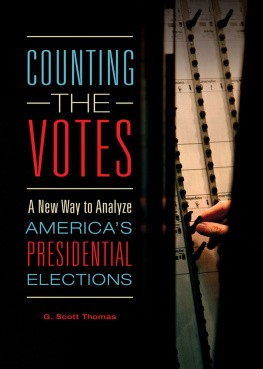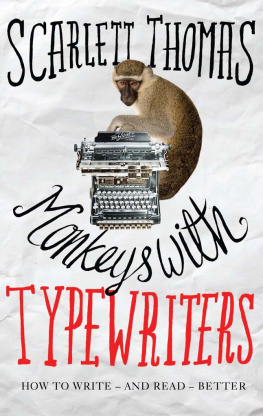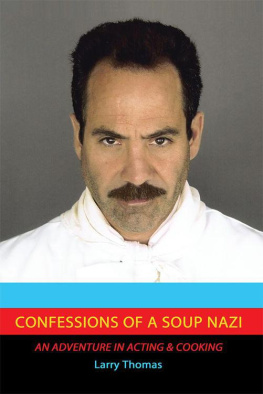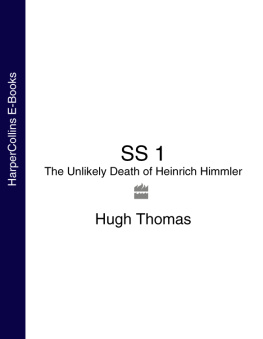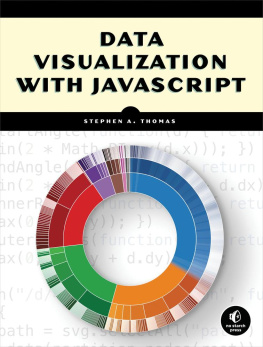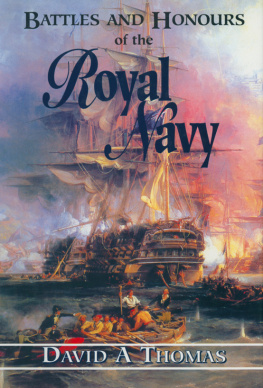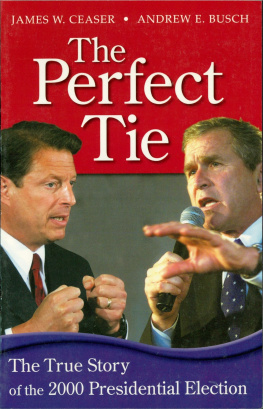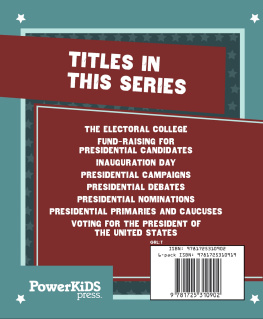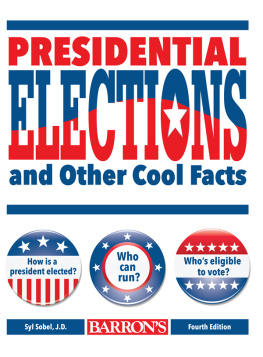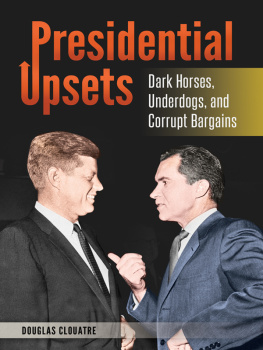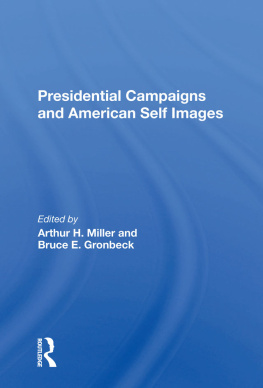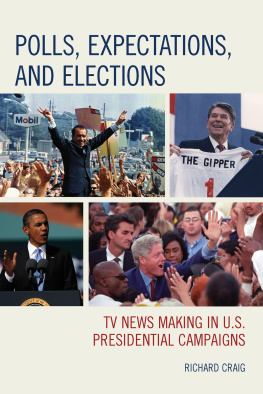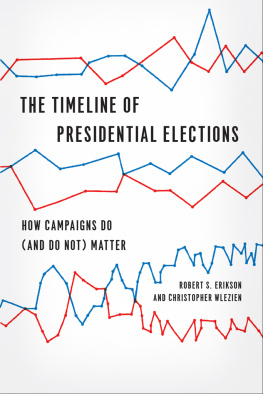Counting the Votes
Counting the Votes
A New Way to Analyze America's Presidential Elections
G. Scott Thomas
Copyright 2015 by G. Scott Thomas
All rights reserved. No part of this publication may be reproduced, stored in a retrieval system, or transmitted, in any form or by any means, electronic, mechanical, photocopying, recording, or otherwise, except for the inclusion of brief quotations in a review, without prior permission in writing from the publisher.
Library of Congress Cataloging-in-Publication Data
Thomas, G. Scott.
Counting the votes: a new way to analyze Americas presidential elections / G. Scott Thomas.
pages cm
Includes bibliographical references and index.
ISBN 978-1-4408-3882-8 (alk. paper) ISBN 978-1-4408-3883-5
1. PresidentsUnited StatesElections. I. Title.
JK528.T56 2015
324.973dc23 2015001776
ISBN: 978-1-4408-3882-8
EISBN: 978-1-4408-3883-5
19 18 17 16 15 1 2 3 4 5
This book is also available on the World Wide Web as an eBook.
Visit www.abc-clio.com for details.
Praeger
An Imprint of ABC-CLIO, LLC
ABC-CLIO, LLC
130 Cremona Drive, P.O. Box 1911
Santa Barbara, California 93116-1911
This book is printed on acid-free paper 
Manufactured in the United States of America
For Lindsay, who definitely (and ironically) is unfond of math
Lets look at the record.
Alfred Smith
I have learned from bitter experience that Americans somehow regard a political campaign as a sporting event.
Thomas Dewey
Contents
Thomas Dewey was relentlessly ambitious. He was always in a hurry, always striving for success, always pushing to reach the top.
His tiny hometown of Owosso, Michigan, offered no opportunities for fame or fortune, so Dewey sought a larger stage after graduating from college in 1923. It came as no surprise to family and friends that he opted for the largest venue of all, New York City, which he quickly pronounced a thousand times better than Owosso. Dewey was not yet certain of his coursehe might employ his rich baritone voice as an opera singer or his imposing intellectual skills as a lawyerbut he was absolutely determined to strike it big.
Fate made the choice for him. Incipient laryngitis struck on the morning of his first solo recital in New York, inspiring serious doubts about the riskiness of an operatic career. The law seemed a much safer option, and Dewey proved to be remarkably good at it. His organizational ability, commanding presence, and fearless tenacity would serve him well in the court-room. He had found his path.
But nobody, not even Tom Dewey, could have anticipated a rise so stunningly meteoric. He exploded into national prominence while still in his 30s, a brisk, no-nonsense prosecutor who grappled with the toughest figures in the underworldmobsters like Lucky Luciano and Dutch Schultzand sent most of them to prison. The young district attorney became known as the gangbuster, the preeminent media idol of his day. If you dont think Dewey is Public Hero Number One, the Philadelphia Inquirer wrote, listen to the applause he gets every time he is shown in a newsreel.
The next race for governor wasnt slated until 1942. The enthusiastic supporter clearly had a differentand biggertarget in mind.
As did Dewey, whose ambition knew no bounds. He pursued the presidency in 1940, even though two unresolved questions cast a shadow over his prospects. He wasnt a governor or a senator, merely the district attorney of Manhattan. Would people be willing to vote for a DA for president? And he would celebrate his 38th birthday just three months before the convention. Would voters accept a presidential candidate so young? Harold Ickes, the acerbic secretary of the interior in Franklin Roosevelts cabinet, was dubious on both counts. He joked that Dewey had thrown his diaper into the ring.
The campaign went better than the skeptics expected. Dewey emerged as the Republican front-runner, dropping back to the pack only after the Nazis invaded France in May 1940. Ickes proved to be correct in the end. Americans didnt believe a candidate still in his 30s could be entrusted with a challenge as monumental as World War II. The older, more experienced Wendell Willkie won the nomination at the Republican convention, then lost the general election to the ultimate father figure, Roosevelt, who had guided the nation through the turbulent 1930s.
Dewey viewed his defeat as a temporary setback. He redoubled his efforts, first winning the governorship of New York in 1942, then securing the next two Republican presidential nominations. The odds were against him in the general election of 1944. Roosevelt was again the Democratic nominee, American forces were still battling their way toward Berlin and Tokyo, and the nation was reluctant to change horses in midstream. But 1948 was different. The war was over. The new president, Harry Truman, was decidedly unpopular. Voters seemed anxious for an alternative. Newsweek polled 50 political experts a month before the election. All 50 said Dewey would win.
Yet he lost.
Dewey affected a public attitude of nonchalance, but it was a stunning, demoralizing, incomprehensible defeat. He was suddenly a political he privately told his aides.
Tom Dewey would live until 1971, giving him nearly a quarter century to ponder what might have been. He acknowledged his shortcomings as a campaigner, but also came to regret his precocityeverything came too early for me
I have learned from bitter experience, he said, that Americans somehow regard a political campaign as a sporting event.
A New Toolbox
Dewey had a point. There are many compelling similarities between politics and sports:
- They feature intense competition for extremely high stakeswhether the White House or a national championshipand the outcome is always crystal clear. "On Election Day you've won or lost. At the end of the ballgame, you've won or lost," says political consultant Bill Carrick. "The rest of life is murkier."
- They attract the same types of people. Keith Olbermann achieved fame as a wisecracking anchor on ESPN's SportsCenter, morphed into the opinionated host of a political talk show on MSNBC, then returned to ESPN. George W. Bush was part owner of the Texas Rangers before sliding behind a desk in the Oval Office. "There are a lot of parallels," he once said, "between baseball and politics."
- They share a common language. The presidential campaign has Super Tuesday; professional football has the Super Bowl. Politicians often refer to an effective speech as a "home run," a primary defeat as a "knockout punch," and the election itself as the "finish line."
- They deal with breathtakingly huge amounts of money. Baseball's New York Yankees are America's most valuable sports team, worth $2.3 billion as of 2013, according to Forbes.
- They're covered in similar fashion by newspapers, broadcast networks, and websites. "The jobs of political reporters and sports writers are almost identical," says Reuters columnist Jack Shafer. "Determine who is ahead and who is behind; get inside the heads of the participants; decode the relevant strategies and tactics; and find a way to convert reader interest into sustainable enthusiasm."
- And they're fascinated by numbers. Presidential candidates obsess about vote counts, poll results, and fund-raising totals. Baseball fans devour a myriad of batting, pitching, and fielding statistics. "As an annoying little math prodigy, I was attracted to all the numbers in the game," admits Nate Silver, a pioneer baseball analyst who went on to create

